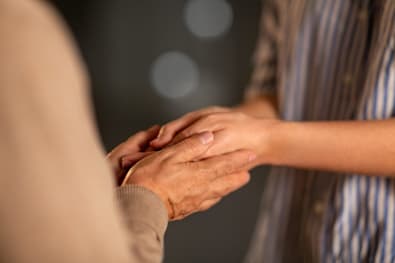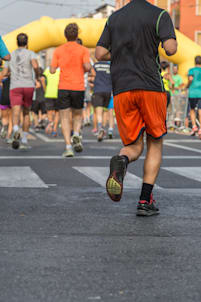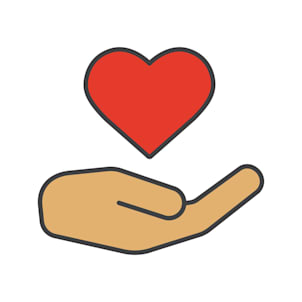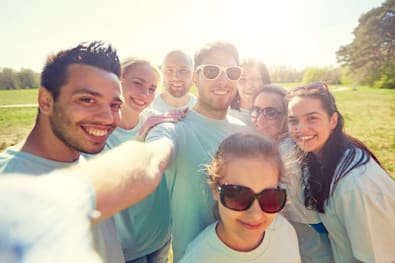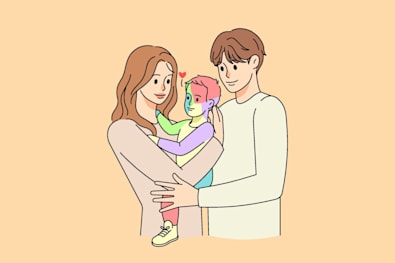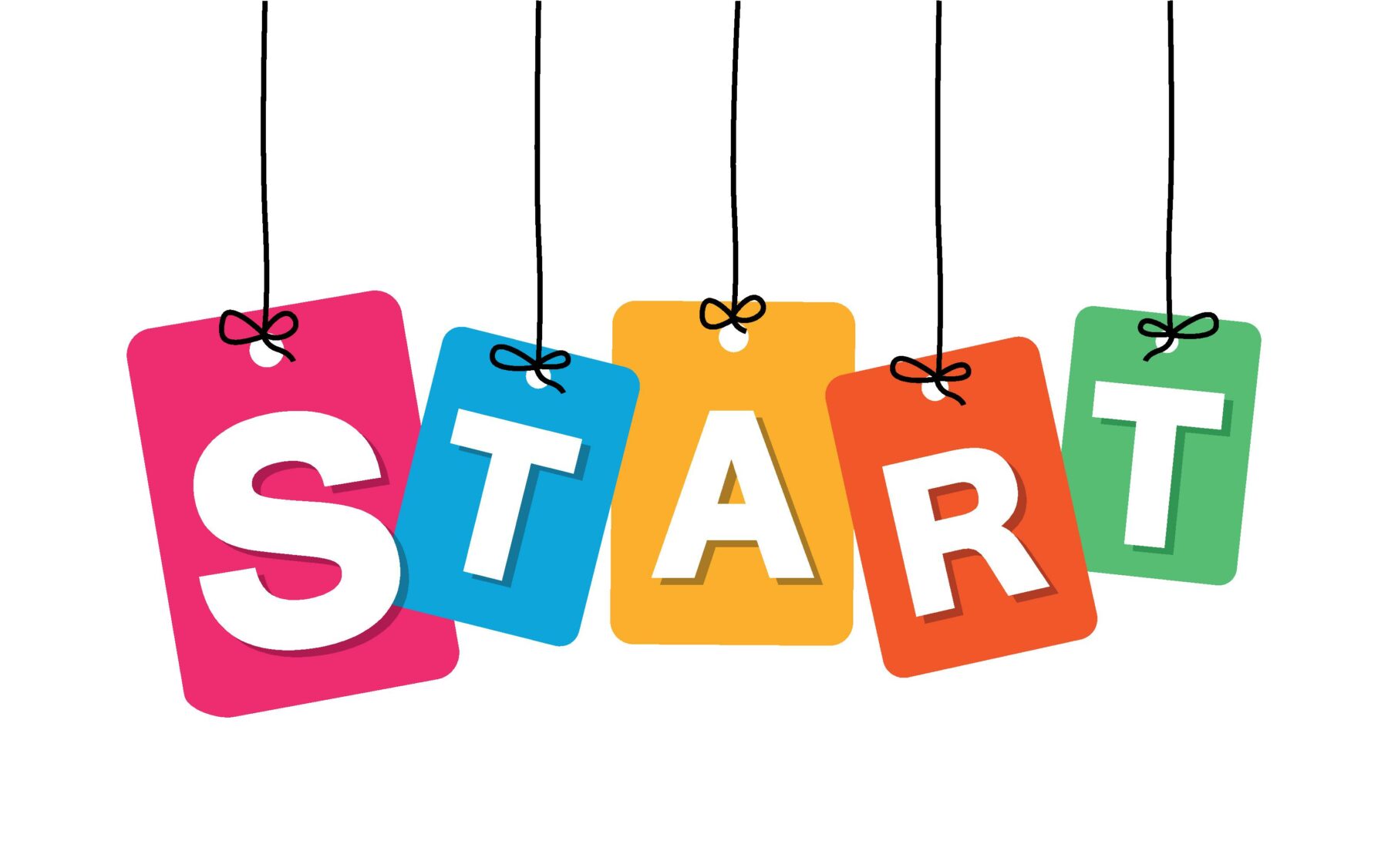You may be wondering what it’s like to be an ABA therapist.
After you read this article, you will know what a practitioner’s average day looks like, the job’s main pros and cons, how you, yourself, can become a successful ABA therapist, and more.
What is ABA therapy?
ABA therapy stands for applied behavior analysis. It is a therapeutic approach that helps autistic children and adults with controlling their behaviors and autism symptoms.
The ABCs of ABA
One of the basic concepts of ABA therapy is the ABC (antecedent, behavior, and consequence). Practicing professionals rely on the ABC to understand why an autistic patient is behaving a certain way.
First of all, ABA therapists identify the emotional, verbal, visual, physical, or other type of antecedent that led to the behavior. For example, the antecedent may be a word that upset the child, a bad thought that they had, or a loud noise that came from the TV.
The behavior is how the kid reacted, such as by crying, screaming, pulling their hair, or throwing objects.
Finally, ABA therapists determine the consequence that followed and its influence on the behavior.
To illustrate, here is an example:
- Antecedent: An autistic child’s parents turned on the TV.
- Behavior: The child started to cry and pull their hair because they felt that the TV volume was too loud.
- Consequence: To stop the child’s behavior, the parents turn off the TV or (if they didn’t know why their kid was crying) give them some ice cream.
In this example, the consequence encourages that undesirable behavior since it teaches the child that they get rewarded with ice cream for crying and pulling their hair.
To address this behavior, an ABA therapist rewards the autistic girl or boy when they point at the TV, politely ask them to turn down the volume, or express themselves in another desirable manner.
Crying and hair pulling, meanwhile, would be met with silence or inaction.
Ultimately, ABA therapists use incentives like candy, ice cream, and toys to reward good behavior.
Interpersonal Therapy and ABA
A crucial aspect to ABA is interpersonal therapy.
This method looks at how a patient’s mental health is shaped by the way that they relate to and communicate with their family members, friends, classmates, teachers, and others in their lives.
Regardless of whether a therapist uses the ABC or interpersonal approach (or both), their main role is to help autistic children develop their social, academic, behavioral, motor, and overall skills.
ABA therapists typically engage in activities and routines that revolve around these goals.
What does a typical day look like for an ABA therapist?
If you are thinking about becoming an ABA therapist, here are examples of what you will work with autistic children on:
- Behavioral Skills: Teaching them to sit still on the table, not scratching or biting when upset, and sharing belongings.
- Communication: Showing them how to verbally ask for a toy or express that they’re uncomfortable or unhappy.
- Social Skills: Guide them as they play with others, make new friends, and become confident enough to ask questions in the classroom.
- Academic Performance: Making sure that they learn how to do their homework without being told to, put away their items when they’re done, and politely ask to watch TV or play with their toys after they’re finished.
To enable kids with autism spectrum disorder (ASD) achieve these objectives and more, ABA therapists have to utilize multiple mediums, settings, and locations.
Mediums That ABA Therapists Use
As a practitioner, you may take advantage of iPad apps to improve autistic children’s skills and play interactive digital and offline games with them.
The following are a few of the benefits of therapeutic iPad use:
- You can watch and emulate yoga and exercise videos. This is particularly important because it shows autistic kids how to regulate their body movements and enhance their balance and coordination.
- An iPad stylus (a pen-shaped tool) helps girls and boys with autism learn how to write (via apps).
- The stylus also allows them to develop their motor skills when they touch and navigate the iPad screen with it (instead of doing so with their fingers).
- Dancing and music apps may act as a form of music and movement therapy.
In the same vein, practitioners spend a lot of time playing games and on ABA therapy activities for autism, which might include:
- Dressing up dolls teaches a child new words/sentences and encourages them to speak.
- Play dough calms the senses of patients with ASD and energizes their sensory processes.
- Games that entail organizing items based on their colors.
While it’s common for therapists to play with the child individually, many autistic girls and boys find it therapeutic to engage with a group of kids.
Settings: Individual vs Group Therapy
ABA therapists observe children in one or both of the following settings:
- Group Therapy: Here, the practitioner monitors how the child interacts with their classmates or treats them among a group of other autistic patients.
- Individually: The ABA therapist holds one-on-one sessions with the boy or girl.
Keep in mind that, whether it’s a group or individual setting, ABA therapists have to regularly commute and practice their profession in multiple locations.
Locations That Therapists Work In
Here are a few potential places that ABA therapists could watch and work with patients in:
- Home Visits: You would frequently spend most/all of the day at the child’s home and conduct ABA sessions there.
- The Therapist’s Office: As a therapist, you will have to see and treat kids at your office, as well. However, it may take the patient more time to get fully comfortable with office sessions in comparison to at-home ones.
- At School: Some practitioners go to the boy or girl’s school to help them with their social and communication skills.
- Other Events: In the same vein, therapists commonly observe autistic children at playgrounds, family gatherings, and other social events.
In short, being an ABA therapist can be demanding.
In addition to balancing between the various mediums, settings, and locations that are involved in a treatment program, practitioners must also cater to their patients’ unique and evolving needs.
Is being an ABA therapist difficult?
Professional therapists often run into difficulties and challenges in applied behavior analysis that require patience, organization, and dedication, such as the following:
- Taking on physical tasks like sitting or standing beside the child as they eat or play, keeping up with their energy levels, and preventing them from causing damage.
- Addressing problematic and troublesome behaviors. For example, a kid may excessively yell or cry, damage furniture, and throw objects when they’re upset or stressed.
- Managing a high amount of caseloads.
- Finding an appropriate work-life balance.
- Switching between a therapist-patient/child approach to a collaborative one when they talk to the parents or teach them behavioral management techniques.
With that being said, this profession comes with a lot of positive aspects, too.
Is being an ABA therapist a rewarding job?
Yes, it is. In fact, many ABA therapists appreciate and enjoy the rewarding and fulfilling nature of their job due to the following reasons and more:
- They get to see autistic children improve their skills and reach important personal, academic, social, and developmental milestones.
- ABA practitioners witness the happiness and pride that they brought to a family firsthand.
- Throughout the day, therapists experience the joyfulness and lightheartedness of working with kids.
- They fulfill their passion for giving to others and making a difference in people’s lives.
If you are motivated by these benefits and rewards, especially passion, you are likely to become an effective and successful ABA therapist.
How can I be a successful ABA therapist?
To attain a successful and fruitful career as an ABA therapist, here are some of the qualities that you want to develop or hone:
- A passion for the career.
- The patience and willingness to invest in growth and progress. After all, you won’t reap the rewards or notice a major change overnight.
- You enjoy engaging with children, playing games with them, and participating in other activities for kids.
In addition to demonstrating these qualities, you also have to obtain the proper certification to be a professional ABA therapist.
How do I get started on becoming an ABA therapist?
The Behavior Analyst Certification Board (BACB) is in charge of overseeing the processes that aspiring ABA therapists have to go through to get certified.
There are three types of certificates that allow you to practice ABA therapy:
- Board Certified Assistant Behavior Analyst (BCaBA)
- Board Certified Behavior Analyst (BCBA)
- Board Certified Behavior Analyst-Doctoral (BCBA-D)
Each of these will require you to have an undergraduate or postgraduate degree.
Alternatively, you may obtain a registered behavior technician (RBT) certification with a high school diploma, which enables you to assist and work with practicing ABA therapists.
However, RBTs aren’t permitted to directly provide the treatment, while BCaBAs and BCBAs can.
Become a BCaBA with a Bachelor’s Degree
To get your BCaBA certification, follow these steps:
- Get your undergraduate degree. If your degree is from a college or university that is accredited by the Association for Behavior Analysis International (ABAI), skip step 2 and go to step 3.
- If your school is not accredited, enroll in 225 classroom hours’ worth of behavior-analytic courses as you work towards your degree. To clarify, this is equal to 15 semester credits or about 23 quarter credits.
- Complete 1,000 to 1,300 field hours under the oversight of a supervisor who meets certain requirements.
- Submit your application and documents (including your degree and verification that you finished your fieldwork program).
- You can expect to hear back within 45 days with an approval or a denial.
- If your application is approved, schedule your exam and pass it.
- Check your local or state rules for ABA therapists and, if there are any, make sure that you meet them.
After that, you may immediately start practicing ABA therapy as long as you have a BACB-registered BCaBA supervisor
From there, you must maintain your BCaBA certificate. Here is how:
- Regularly work as an ABA practitioner and avoid stopping for prolonged or extended periods.
- Be consistently supervised.
- Meet ethical requirements.
- Renew your certification every two years.
These rules also apply to BCBA and BCBA-D certificates. Yet, BCBA and BCBA-D therapists can work without being supervised.
Become a BCBA with a Master’s Degree:
This what you have to do to become a certified BCBA:
- Get your master’s degree. Skip to step 3 if your degree is from an ABAI-accredited institution.
- If your school is not accredited, complete 315 classroom hours (21 semester credits/32 quarter credits) of behavior-analytic courses or, alternatively, finish 3 years of work as a behavior-analytic faculty or research member.
- Complete 1,500 to 2,000 field hours under the oversight of an eligible supervisor.
- Submit your application and documents.
- Wait until you get a response within 45 days.
- If your application is approved, schedule your exam and pass it.
- Check and meet your local or state rules for ABA therapists.
Next, you may begin working as an ABA practitioner right away and without a supervisor. From there, you want to make sure that you renew your certification every two years.
Become a BCBA-D with a Doctorate Degree:
The steps for becoming a BCBA and BCBA-D are very similar. To illustrate, this what getting a BCBA-D certification looks like:
- Gain 10 years of work experience as an ABA practitioner (teaching doesn’t count) with a national, state, or local certification.
- Complete 500 hours of field work.
- Follow the rest of the steps that you would take to get your BCBA certification (steps 4-7 above) and renew it every 2 years.
Apart from the eligibility rules and certificate designation, the roles, responsibilities, and permitted scopes of practice are identical for both BCBA and BCBA-D certificate holders.
As a matter of fact, a similar thing could be said about practicing ABA therapy, in general. Everything goes back to the ABCs, positive enforcement, and other basic therapeutic techniques.
Just as importantly (and regardless of the certification that they have), a typical day for almost any ABA therapist entails playing with children, dealing with behavioral challenges, and reaping the rewards that come with seeing their patients’ lives change.

